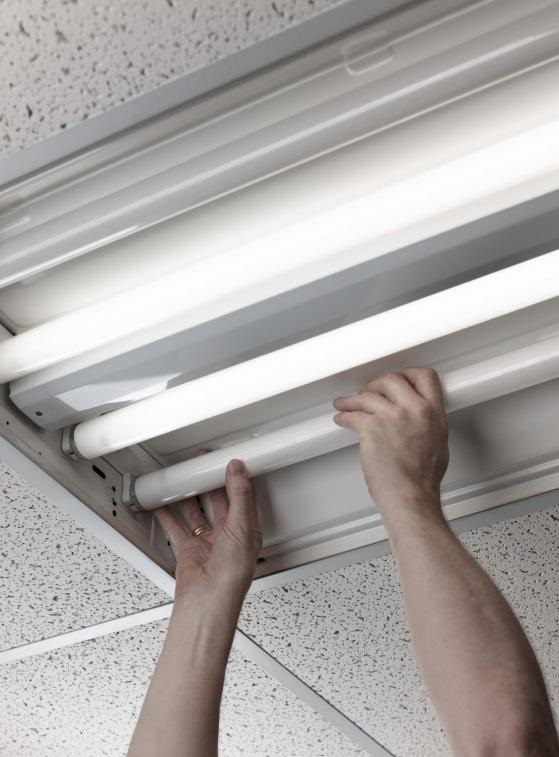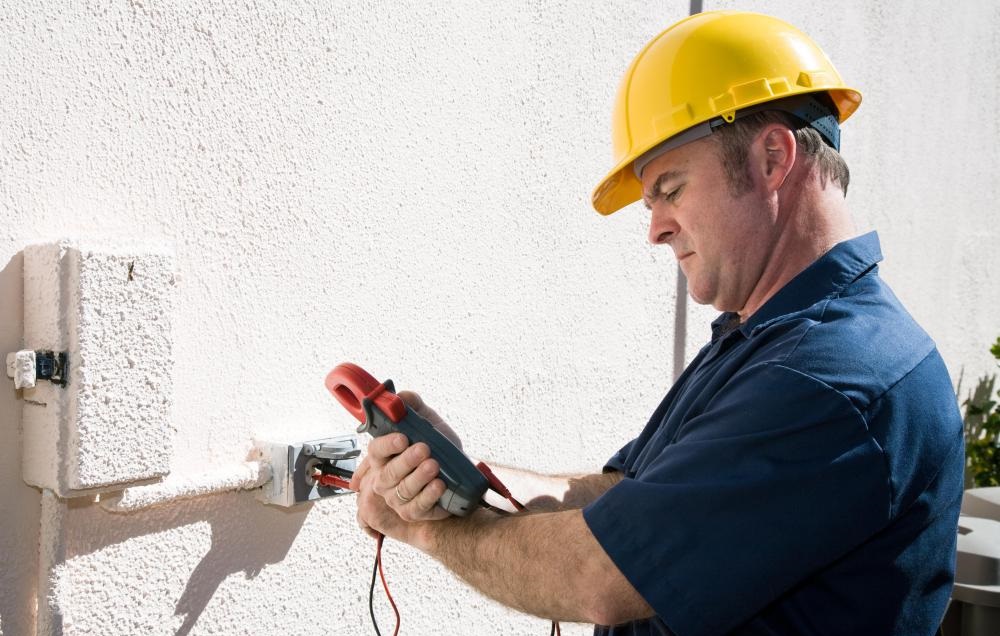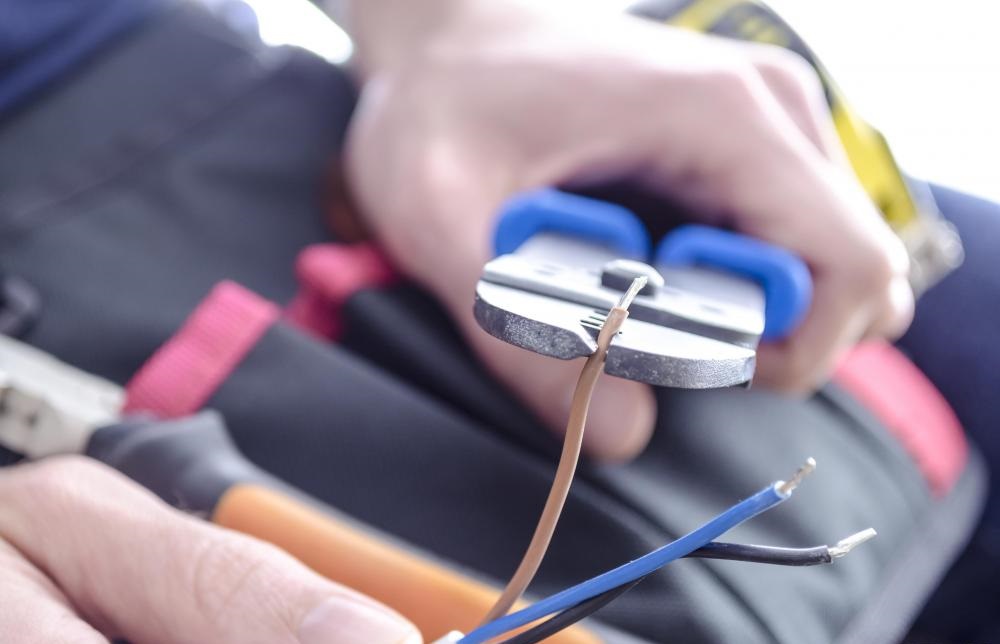Electrical Maintenance Training
Your facilities depend on efficient and reliable management of your electric power, distribution, control, security, communications and heating/lighting systems. A well-trained electrical maintenance staff, coupled with the performance of regular industrial electrical maintenance tests, is critical to ensuring safe, reliable operation. Use the Electrical Maintenance training to raise awareness of potential hidden problems in your electrical systems before they grow to become disasters.
Benefits of the Electrical Maintenance Program Include:
Essential on-boarding and refresher training
Move from a repair/replace focus to predictive/preventative maintenance
Consistent delivery, with broader reach, flexible scheduling and automated record keeping
Improved safety and enhanced productivity
The knowledge and training needed to keep pace with best practices and electrical technological change
Evolve to multi-craft performance and efficiency
Who Should Use it? Designed for professionals, such as:
Electrical Maintenance Mechanics, Electrical Technicians, and Electricians
Employees associated with the management of electrical services and systems for equipment and facility services
Industrial Supervisors & Managers
The Electrical Maintenance Training is a world-class curriculum, built around 8 learning blocks through 4 progressive stages. Topics are designed to prepare the student to become conscious of safety considerations, understand the electrical implications of machine and equipment assignments, work comfortably with electrical schematics, maintain motors and control systems, utilize appropriate test equipment, troubleshoot rotating and static systems, train and supervise affiliates and pursue continuous improvement.

Electrical Maintenance Certificate
Stay current. Earn a career-ready certificate.
Take the next step toward a career in electrical maintenance with this 8-credit-hour certificate program. Focusing on equipment operation, application, installation and servicing, this program gives you a basic overview of all aspects of the electrical maintenance field. By completing this program, you’ll be ready to seek entry-level employment in an electrical installation and service position, or qualify for a job in other related facilities or industrial electronics maintenance areas.
credit-hour certificate program is designed to prepare students for careers in the field of electrical installation and service, and other related facilities or industrial electronics maintenance areas. The curriculum is tailored to provide entry-level career training in the least amount of time. Emphasis is placed on equipment operation, application, installation and servicing. Courses specific to instruction include: basic electricity and electronics, residential or commercial electrical wiring and codes, and basic automation systems. Topics within these courses involve: practical electrical concepts and measurements, electrical wiring, and an introduction to programmable logic controllers.
Students completing this program may find employment as electrical technicians, electrician apprentices, electricians, and facilities or plant maintenance technicians. Students may also continue their education by pursuing an Associate in Applied Science degree. Students considering this option are encouraged to meet with the Program Coordinator and an academic advisor prior to beginning the program, and also when planning their schedule each semester.
Classes include introductory electronics, electrical wiring and industrial control systems. All courses are taught by skilled instructors who are experts in the electrical maintenance field.

What is Electrical Maintenance?
Electrical maintenance is the upkeep and preservation of equipment and systems that supply electricity to a residential, industrial or commercial building. It may be performed by the owner or manager of the site or by an outside contractor. The work is commonly performed on a schedule based on the age of the building, the complexity of the electrical system or on an as-needed basis.
The main areas of general electrical maintenance commonly include the power outlets and surge protectors, generators and lighting systems. These supply sources are checked for structural integrity as well as internal stability. The maintenance plan normally includes the regular replacement of burned out fluorescent and incandescent lights. Many building managers in recent years have refitted their lighting systems with energy saving bulbs and elements.
Preventive maintenance is also generally part of a building’s upkeep. This plan ordinarily includes the scheduled inspection of large systems and equipment by a professional electrician. The purpose of these periodic assessments is to fix small problems before they escalate into large ones. This is particularly important at plants, hospitals and factories that heavily rely on these systems for daily operations.
Electrical generators, switches and circuit breakers are regularly checked for solid connections and intact wiring. If flaws are discovered, electricians normally make repairs. Depending on the condition of the wiring, the repairs are typically made by splicing wires together. In some situations, they are encased in metal tubing called conduit to protect them from wear. Keeping the wiring in good shape ensures a consistent flow of power to heating, ventilation and air conditioning systems.
To guarantee the steady, uninterrupted flow of electricity to buildings, electrical maintenance is ordinarily performed by licensed industry professionals. These maintenance electricians normally have building specifications, wiring and equipment diagrams, and blueprints at their disposal to make sure they inspect all areas. They typically use a variety of hand tools, including hand drills, pliers, wire cutters, screwdrivers, knives and conduit benders. Voltage, amps and ohm meters are commonly used in the maintenance operations

Mechanical & Electrical Maintenance
Heating, Ventilation and Air Conditioning
Regular maintenance of your heating, ventilation and air conditioning systems not only assists in preventing breakdowns in business critical environments, but also helps to improve energy efficiency and enhance system optimisation for improved performance. This results in reduced running costs, greater energy efficiency and a potentially longer life of the units.
Regular Electrical Maintenance
Regular testing of your electrical equipment can prevent electrical accidents or fires occurring in the workplace, it is a requirement under the Electricity at Work Regulations 1989 as well as for many insurance policies. On each engineer attendance, we outline potential hazards, check for breakdowns and submit remedial requests. Visits from our maintenance engineer will also provide your on site staff with any refresher guidance on the safe use of electrical installations if required.
Mechanical HVAC Services & Inspections
We provide Mechanical HVAC Services & Inspections across the mainland. Our Industry expertise include Academies, Universities and government bodies, as well as the Leisure, Retail and Commercial sector.
Electrical Testing & Inspections
We provide electrical testing and compliance inspections across the mainland. Our Industry expertise include schools, universities and government bodies, as well as the leisure, retail and commercial sectors.
Statutory Compliance Inspections
can work with the person tasked with the responsibility of Statutory Compliance for their buildings to ensure you remain compliant with legislation.
Electrical Maintenance (Industrial Maintenance)
The Electrical Maintenance Embedded Technical Diploma focus provides students with the knowledge and skills necessary to safely assist mechanics in repairing, overhauling, installing, testing and inspecting mechanical and electro mechanical equipment. Assist in performing preventive and predictive maintenance on equipment, building and grounds.
As a student in the Electrical Maintenance Embedded Technical Diploma, you will:
Learn to measure voltage, current, resistance for single and three phase direct current and alternating current (DC/AC) sources.
Apply math to calculate electrical power equation pertinent to the maintenance field.
Understand safety standards for industry as outlined by the Occupational Safety and Health Administration (OSHA) and receive an OSHA 10 card, an Industry recognized credential.
Interpret engineering drawings.
Enhance industry recognized soft skills such as communication and teamwork
Program Details
The Electrical Maintenance Embedded Technical Diploma is on a career pathway that leads into the one year Industrial Maintenance Mechanic program and the two year Industrial Maintenance Technician Program.